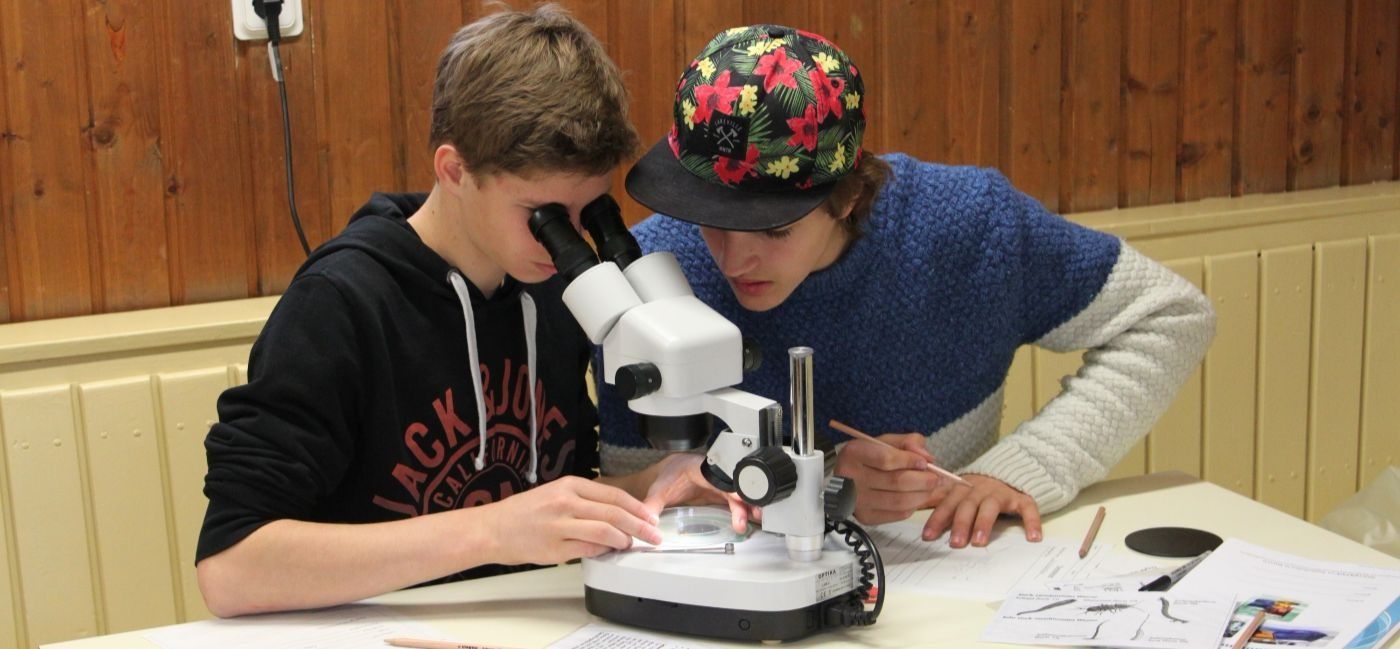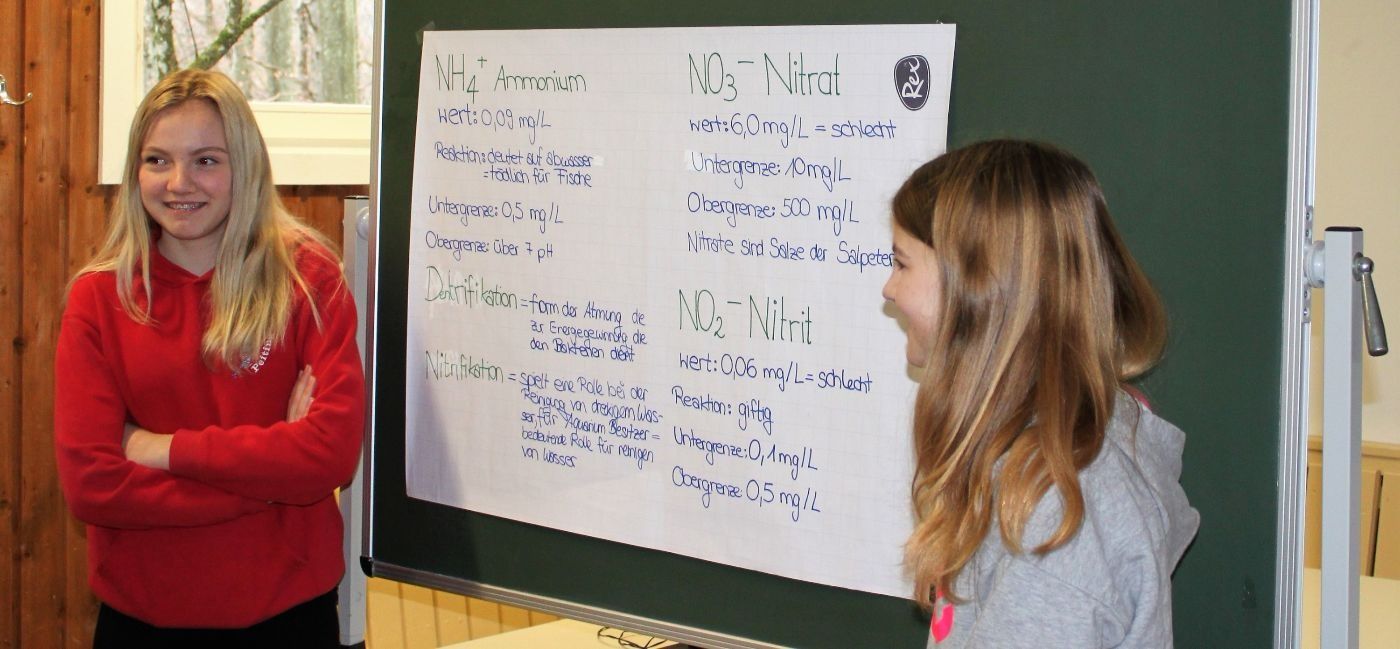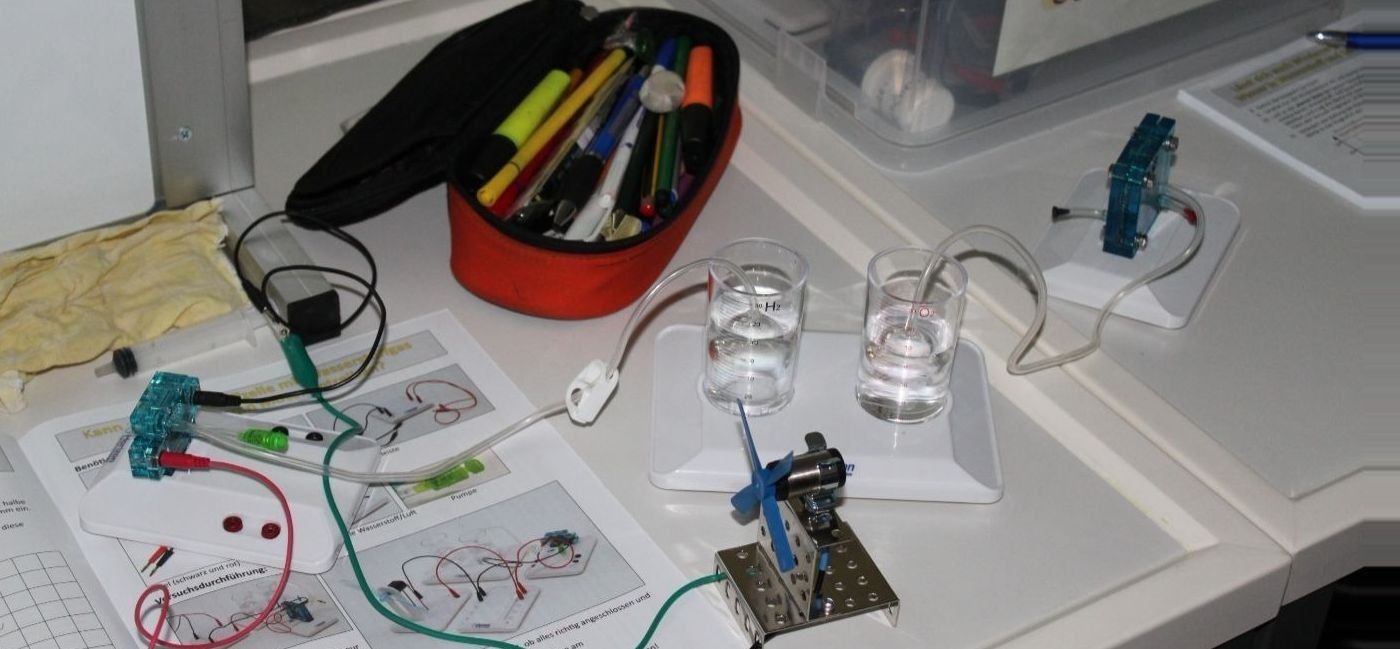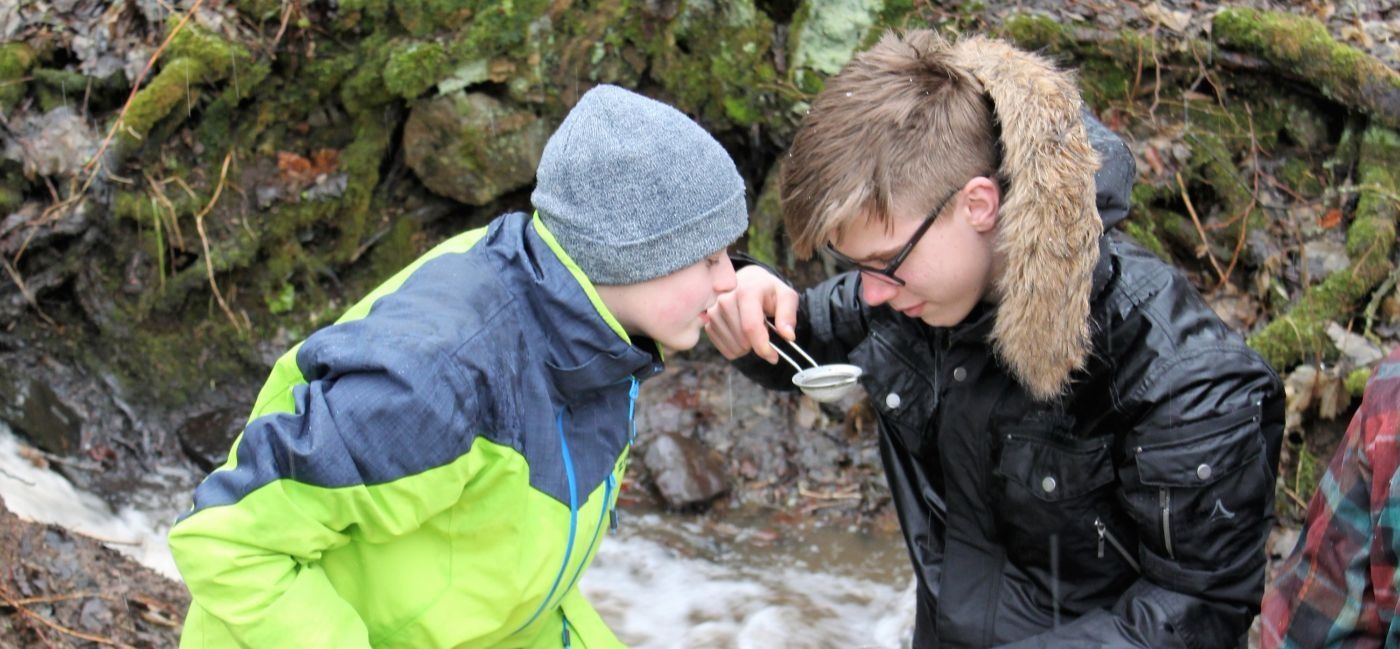STEM class outing
Experiencing chemistry and physics lessons live

STEM class outing
Experiencing chemistry and physics lessons live

STEM class outing
Experiencing chemistry and physics lessons live

STEM class outing
Experiencing chemistry and physics lessons live

STEM class outing
Experiencing chemistry and physics lessons live

We are probably all familiar with the problem that, as a school pupil, mathematical calculations and physical or chemical experiments often seem to bear little relation to practical applications in everyday life.
With the aid of the practical project “MINTensiv” (STEMensiv) which takes place at a school camp, the pupils have the chance to carry out experiments to research, experience and shape the practical application of chemical and physical processes. The practical experiments motivate the pupils to apply scientific principles to everyday life and to thus better understand the significance of calculations using scientific models.
Topic: STEM funding
Age category: 12 - 18 years
Venue: School camp
Duration: 1-5 days
Participation requirements: Maximum of 30 school students
The Frank Hirschvogel Foundation is pleased to support your STEM trip to a school camp or at a scientific facility, where students can carry out STEM experiments based on the content of the curriculum in a practical way. Simply send us your inquiry using the contact form.
2018
Full of anticipation and excitement, we headed to Bischofsheim in the early hours of the morning. Right that afternoon we were able to familiarize ourselves with the laboratory and carry out the first experiments.
We spent the whole of the following day in the laboratory, too. With the help of solar power we decomposed water into hydrogen and oxygen. Later, we were also allowed to do the same using wind energy. After that, we then fed the obtained hydrogen into a fuel cell, thereby releasing energy again. This process is called synthesis. Although the day in the laboratory was a little exhausting, we were all excited about the next unit.
On Wednesday we went on an excursion. The coach picked us up right after breakfast and brought us to the company Bionade in Ostheim, where we were given a tour of the premises to find out more about the famous lemonade produced there. Although Bionade is made in a beer brewery, it is, as you probably already know, alcohol-free. After returning from our trip, it was time to get some exercise. This came in the form of a rally where we had to answer a number of questions as we explored Bischofsheim an der Rhön. At the same time, we had the chance to fill our backpacks with some great souvenirs.
On Thursday, it was time to get back to our research activities. This time, however, we were not carrying out tests in the laboratory but in the great outdoors. Firstly, we took a closer look at the stream near to the school camp and discovered all kinds of living creatures in it. After this, we analyzed the water and determined its ions. That was a lot of fun, as we took on a very active role here. Washing our rubber boots at the end was not quite so much fun, however.
This eventful and impressive week was made possible by the Frank Hirschvogel Foundation, which has provided extremely generous funding for this project three times now. Many thanks again on behalf of the entire school family!
2017
Two 8th grade classes of a high school in Schongau (Pfaffenwinkel-Realschule) spent a week on the topic of “Active Research” at the school camp in Bauersberg as part of a STEM class outing.
The pupils showed great motivation and enthusiasm in carrying out experiments and closely observing natural processes in their environment. The production of hand warmers fitting for the season also motivated them to put their chemistry and physics knowledge to practical use. They were then able to benefit from the hand warmers during the various hikes in the Rhön Mountains.
From a biology standpoint, there was a lot on offer, too: Wearing rubber boots, the pupils analyzed the living creatures in a stream as an indicator of water quality. The pupils used photometric methods to carry out a chemical test on the water samples. The goal, among other things, was to show them future career possibilities in the sciences. The pupils also held presentations about the insights gained to their work groups. This promoted their confidence in speaking in front of others. The pupils also addressed the topic of treating the environment in a conscious and sustainable way by carrying out relevant experiments in the area of regenerative energy.
The Frank Hirschvogel Foundation assumed a large share of the costs for the trip.
2016
School pupils enthusiastically carrying out research and experiments during the “MINTensiv” (STEMensiv) school camp. Two 8th grade classes from a high school in Schongau (Pfaffenwinkel-Realschule) were able to spend the last week of April in Bischofsheim an der Rhön. The focus of the stay was on the areas of water, chemistry and energy.
During the project week, the students had plenty of time to carry out experiments, thereby gaining insights into scientific working methods. Due to the sheer scope of the school curriculum, it is often not possible to conduct such experiments during the regular chemistry and and physics lessons. Besides the practical work, this trip also serves as career orientation.
The Frank Hirschvogel Foundation assumed a large portion of the costs.